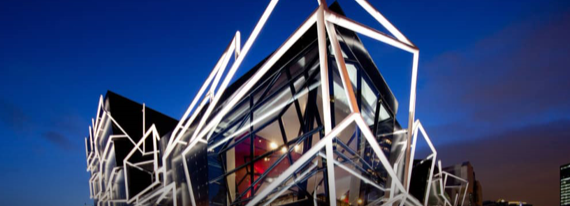
Events
Indigenous Law and Justice Hub at the University of Melbourne
Featured events
From stacktivism to platform alternatives
In contemporary activism there is a growing realisation that there is an urgent need to distinguish between tools for (decentralised) organisation and (broad) mobilisation that scale up. Social media platforms have mixed the two up (news & personal messages), to the point of becoming unworkable, exhausting, unleashing mental health crises, on top of creating dangerous situations in terms surveillance.
The social media hegemony is not yet broken but there are many cracks in its architecture—and appeal. While the Internet Question seems stagnant and unresolved, the hype caravan has moved on. From VR, crypto and Web3 we are now all in the grip of ‘AI’ as the latest marketing term for machine learning and large language models that feeds its generic ’summary’ content back into the Web. While the ‘infuencer’ persona is in decline, the mass obsession with likes, views, comments, swiping from one TikTok video to the next, retweets funny memes continues. What will disrupt the ‘bored billions’ is the automation of activism (already visible in the current waves of fake news and deep fakes).
While officials raise the ethics issue of AI for Good, asking the impossible question how to build ‘responsible’ extraction software, hackers, designers and other artists are coding subversive tools that disrupt and undermine the totalitarian system of control, ‘polluting’ data bases, turning fake news and monstrous images upside down.
The message is clear: the world prepares for planetary cyberwarfare. Are you ready?
Climate change on trial: Mobilising human rights litigation to accelerate climate action
This talk is based on a forthcoming book that tells the twenty-year socio-legal story of human rights-based climate (HRC) litigation. Based on an original database of the totality of HRC lawsuits around the world as well as interviews with leading actors and participant observation in the field, it explains the rise and global diffusion of HRC litigation as a form of climate governance. The book combines insights from global governance, international law, climate policy, human rights, and legal mobilization theory in order to offer a sociolegal account of the actors, strategies, and norms that have emerged at the intersection of human rights and climate governance. By proposing a broad understanding of the impacts of legal mobilization that includes direct and indirect, material and symbolic effects, it documents the contributions and shortcomings of human rights litigation in addressing the climate emergency.
This event is co-hosted by Melbourne Climate Futures, the Institute for International Law and the Humanities, the Melbourne Law School Human Rights Program and the Melbourne Centre for Law and the Environment.



